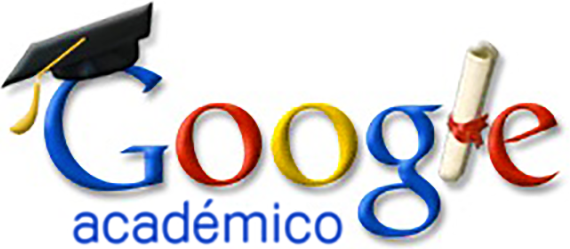Education and development: new thought and new purposes for Education in Angola.
Keywords:
Education, Development, Public policy, Ethics and RationalityAbstract
Our research aims to contribute to a reflection on the need for reform of educational policies in Angola. Now the problem we raise in this investigation is related to the possibility of inadequacy of political discourses and the results of education/training defined by public policies.
Our conclusions indicate that we must instigate, promote and create structures to liberate young people, creating prospects for successful social insertion, build an Education based on trust and responsibility in cooperation with the world of work in ways that can guarantee a quality based on direction rather than control, on the other hand, that learning comes throughout life and in different situations and that everyone can study until their death and that values personality, creativity, ethics, morality and talents in the teaching process.
Downloads
References
Aristóteles. (1991). Ética a Nicómaco (Poética). São Paulo, Ed. Nova Cultural, Trad. Leonel Vallandro e Gerd Bornheim, 4ª ed. ASA, 2003
Bertrand, Y. (2001). Teorias Contemporâneas da Educação, Lisboa, Instituto Piaget.
Blackburn, Simon. (2000). Ruling Passions: A Theory of Practical Reasoning. New York: Oxford University Press, ©1998.
Cortela, Mário Sérgio., Renato Janine, Ribeiro. (2010). Política para não rer idiota. São Paulo, Papirus 7 Mares.
Figueiredo, M. I. M., A. (1993). Reforma Educativa Portuguesa de 1986. Retórica e Realidade, Braga, Universidade do Minho, Instituto de Educação.
Freire, Paulo. (2001). Política e educação. 5. Ed, São Paulo, Cortez.
Gramsci, Antônio. (1968). Os Dirigentes e a Organização da Cultura. Rio de Janeiro: Civilização Brasileira.
Laswell Laswell, H.D. (1936/1958). Politics: Who Gets What, When, How. Cleveland, Meridian Books.
Levi, Margaret. “A Model, a Method, and a Map: Rational Choice in Comparative
Lindblom, Charles E. “The Science of Muddling Through”, Public Administration
Lisboa, Relógio (1995). D’Água Editores.
Lowi, Theodor. (1972). “Four Systems of Policy, Politics, and Choice”. Public Administration Review, 32: 298-310.
Mandela, Elson citado em "A Moral EmergenJ: (1993). Breaking the C!Jc!e of Child Sexual Abuse''- Página 66, J ade Christine Angélica - Rowman & Littlefield, ISBN 1556126174, 9781556126178 .
Mead, L. M. “Public Policy: Vision, Potential, Limits”, Policy Currents, fevereiro:
Morin, E. (1999). Os Sete Saberes para a Educação do Futuro, Lisboa, Instituto Piaget, 1999
nações unidas (1992). Agenda 21: Programa de Ação para o Desenvolvimento Sustentável. Declaração do Rio sobre Ambiente e Desenvolvimento, Texto final dos acordos negociados pelos governos na Conferência das Nações Unidas sobre Ambiente e Desenvolvimento, Nova Iorque, Nações Unidas.
Nóvoa, A. (1995). "Modèles d’Analyse en Éducation Comparée: Le Champ et la Carte", in Les Sciences de L’Éducation – pour l’Ère Nouvelle, Caen, France, nº. 2-3, 9-61.
Perrenoud, Philippe. (2000). Dez novas competências para ensinar. Porto Alegre: Artes Médicas Sul.
Piaget, J.; Szeminsk. A. A. (1964). A gênese do número na criança. Tradução de C.M. Oiticica. Rio de Janeiro: Zahar Editores.
PIRES, A. L. O. (2002). Educação e Formação ao Longo da Vida: Crítica dos Sistemas e Dispositivos de Reconhecimento e Validação de Aprendizagens e de Competências, Tese de Doutoramento, Monte da Caparica, Faculdade de Ciências e Tecnologia – Universidade Nova de Lisboaº
PNUD. (1991-2003). Relatórios do Desenvolvimento Humano, Nova Iorque, Programa das Nações Unidas para o Desenvolvimento.
Postman, N. O Fim da Educação. Redefinindo o Valor da Escola.
Ramsey, F. P. (1990). “Truth and Probability” (1926). In MELLOR, D. H. (ed.). Philosophical Papers: Frank Plumpton Ramsey. New York: Cambridge University Press.
Sá-Chaves, I. (2003). “Educação, Aprendizagem e Sentido. Inteligência para quê?”, in Anais UIED 2002, Monte da Caparica, UIED – FCT/UNL.
Sacristán, J. G. Educar e conviver na cultura global, Porto, Edições
Santos, B. S. (2003). “Dilemas do nosso tempo: globalização, multiculturalismo e conhecimento”, in Currículo Sem Fronteiras, 3(2), pp. 5-23, www.curriculosemfronteiras.org.
Schwartz, P., Eamonn, R., & Boyer, N, (2001). “O despertar da economia global do conhecimento”, in O futuro da Economia Global rumo a uma expansão duradoura? Lisboa, OCDE.
• Stenhouse, L. (1975). An introduction to curriculum research and development. Londres: Heinemann.







